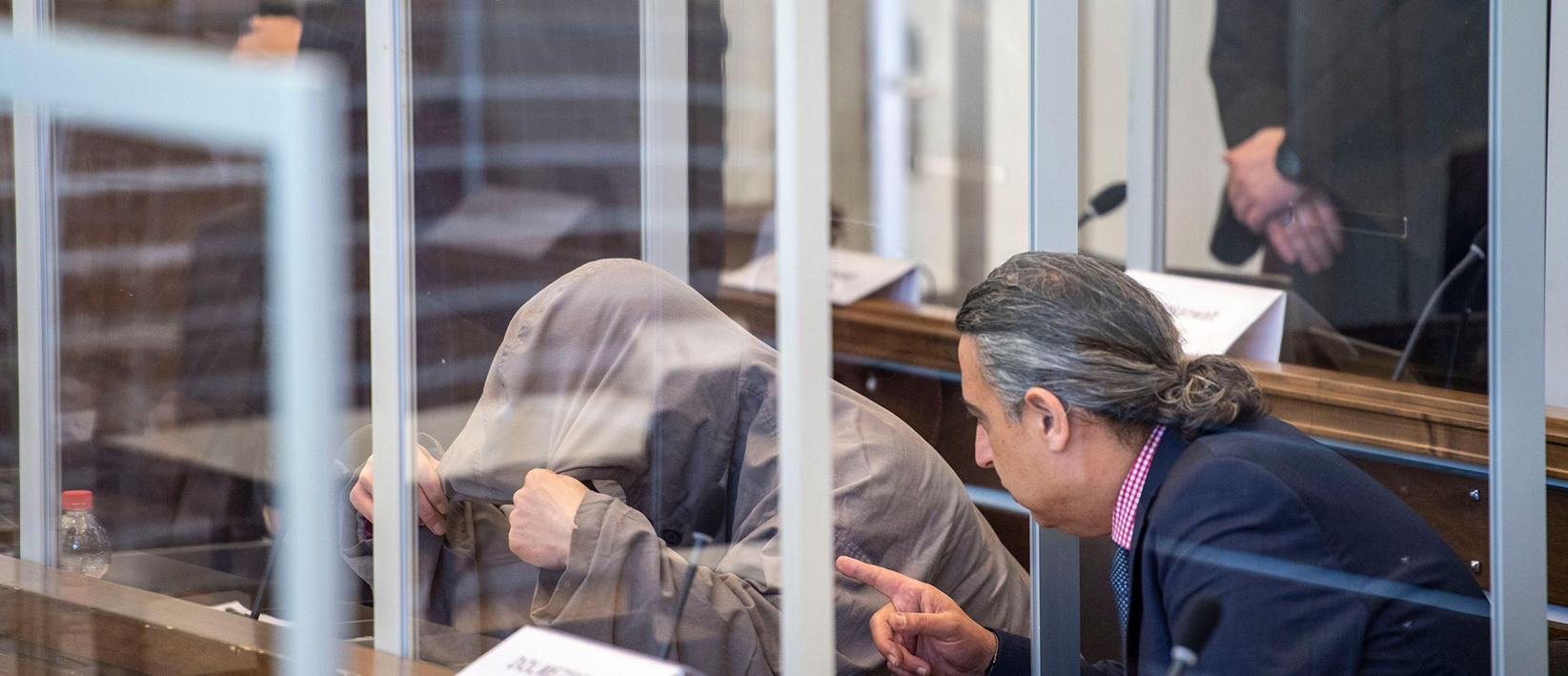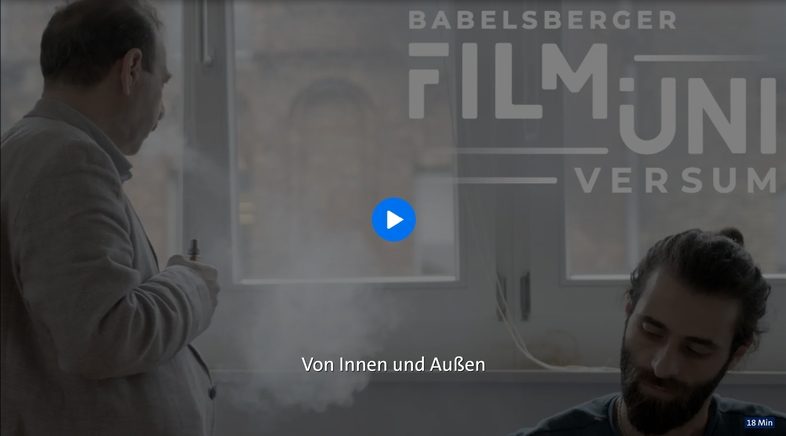
Defendant in the Syria torture trial before the Koblenz Higher Regional Court. Photo: dpa
Against impunity for the perpetrators – justice for the victims!
Syria
People have fled Syria for a wide variety of reasons in order to reach safety, including those who have experienced unimaginable suffering through torture. And there were also those who were responsible for this suffering. These two groups are now coming together in Germany. Anwar Al-Bunni, a Syrian human rights lawyer, also had to leave the country after his arrest and has been living with his family in Berlin since 2014. He soon began interviewing victims, searching for perpetrators, taking witness statements and working with law enforcement agencies. It is his goal that one day he will be able to obtain justice for the victims after all. It was not least as a result of this extremely hard work by the dedicated lawyer that the Koblenz Higher Regional Court was able to start the world’s first trial for state torture in Syria in April 2020 in accordance with the so-called universal jurisdiction principle. The main defendant was the Syrian citizen Anwar R., who was sentenced to life imprisonment for crimes against humanity on 13 January 2022. The 58-year-old is alleged to have been responsible for the torture of at least 4,000 people in a General Intelligence Service prison in the Syrian capital Damascus. The court clearly and formally established the inhumane prison conditions, systematic torture, sexualised violence and killings in Syria. A first defendant had already been sentenced to prison in February 2021 for aiding and abetting crimes against humanity.
The Syrian human rights lawyer Anwar al-Bunni in an interview on the occasion of the 20th anniversary of the Human Rights Foundation
„Even if everything takes a long time and nothing happens tomorrow and not even the day after tomorrow … this trial in Germany … gives us survivors hope for justice. I am ready to testify,“ a Syrian man who was tortured in al-Khatib prison is quoted as saying.
The Human Rights Foundation was also able to support the investigative work of the Syrian Centre for Legal Studies and Research in 2021. Here, human rights lawyer Al-Bunni and his colleagues are working to bring those guilty of the most serious human rights violations in Syria to justice. The Centre’s teams are collecting witness statements all over Europe.
As a result of the reporting on the Koblenz proceedings, many other witnesses have contacted the Centre to have what they experienced in Syria recorded in a way that can be used in court. The success of the work has led to an enormous increase in the Centre’s work. The Human Rights Foundation is pleased to be able to support the centre with funding for travel expenses, translation work, training and technical equipment.
Another judgement was handed down in February 2023. More than eight years after an attack that left several people dead in the Syrian capital Damascus, the Berlin Court of Appeal sentenced a 55-year-old man to life imprisonment. The court found him guilty of particularly serious war crimes, four counts of murder and two counts of attempted murder. Anwar al Bunni’s organisation also supported this trial.
Short documentary film
What does it mean to be confronted with the past of your old homeland in a country where you were looking for security and a new beginning? Does this disrupt processes of repression and make a new beginning more difficult or do the criminal proceedings offer those involved the opportunity to finally see themselves as actors again who can contribute to justice being done for them and others?
This is precisely the question that students at the Babelsberg Film University explored in a short documentary film.
Director Dyaa Naim and producers Fritzie Benesch and Charlotte Jülide Hansen accompanied Anwar Al-Bunni during his work, went to his home and talked about his life with his family. Director Dyaa Naim comes from Syria himself. Arabic is spoken in the film.
„It was very important to us,“ say the students, „not to tell the sensitive and diverse topic of flight from a purely Eurocentric perspective, as is so often the case. That’s why we were very pleased to work with people in our team who come from Syria themselves. But even if our specific case is about Syria, it is a topic that can be applied to many world events in general. Torture and violent crimes have neither a nationality nor a cultural affiliation.
The Human Rights Foundation was happy to support this film project financially.
